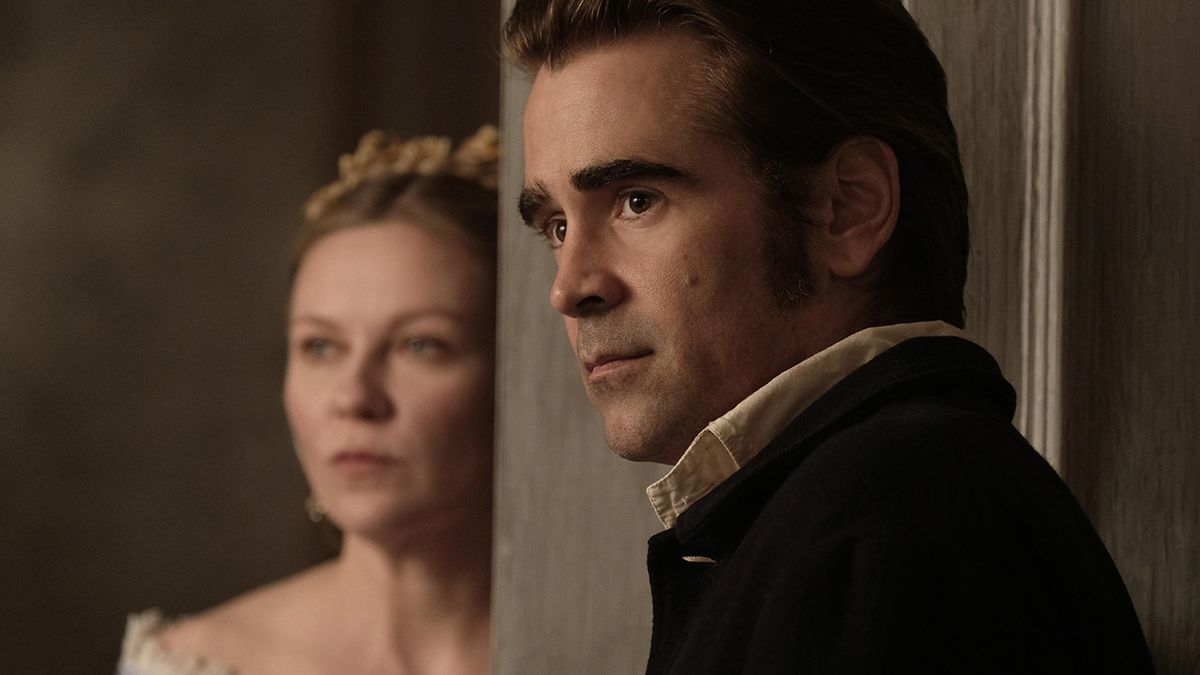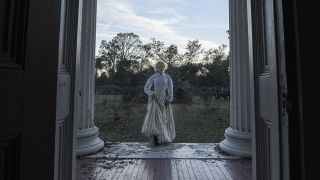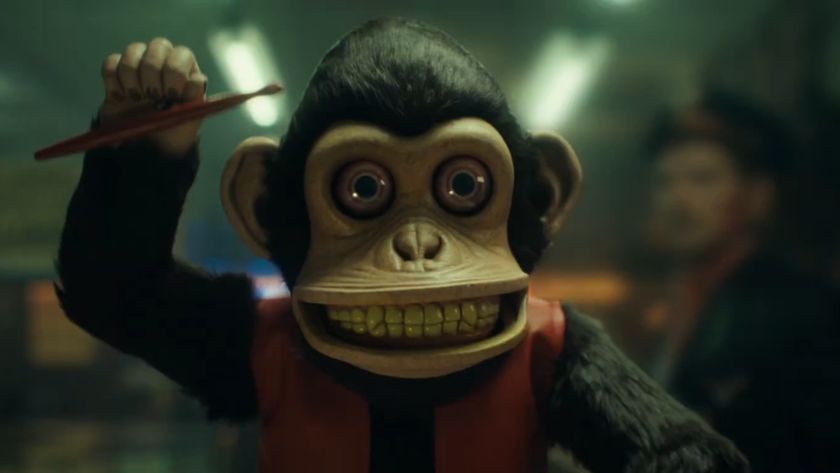Cannes 2017: Sofia Coppola’s Southern thriller The Beguiled is a rare remake that gets it right

Good old fashioned Southern hospital-i-tee gets a sinister and provocatively sexy spin in Sofia Coppola’s bewitching remake of overlooked Clint Eastwood gem The Beguiled. Playing in competition at Cannes, the film marks a triumphant return to the Croisette for Coppola after Marie Antoinette was greeted with a smattering of boos (naturally) in 2006. Rather than adopt the incongruous neon-pop approach that ruffled feathers on that earlier period piece, The Beguiled grounds its history in a specific time and place – a sun-dappled plantation that’s both a utopian refuge and house of horrors for its unwelcome guest.
The year is 1864, Virginia. A few years after the outbreak of Civil War young Amy (Oona Laurence) is picking mushrooms in the woods when she finds badly wounded Union soldier John McBurney (Colin Farrell) slumped against a tree. Deciding to do the Christian thing, Amy takes the injured ‘Yankee’ back to Miss Farnsworth’s Seminary for Young Ladies, a mostly evacuated school that’s home to just five pupils (including Somewhere’s Elle Fanning and The Nice Guys’ Angourie Rice) and two mistresses – Martha Farnsworth (Nicole Kidman) and Edwina Dabney (Kirsten Dunst). Without hesitation Martha gives sanctuary to McBurney, who repeatedly insists on being called John, to heal his wounds, with the intention of handing him over to Confederate troops the next time they’re on patrol.
Only, she doesn’t. As the women get to know John, and the ready-to-pop sexual repression threatens to explode, Martha changes tack, opting to keep John in the house until his leg is fully healed – plenty of time for the fox to cause chaos in the hen house. All the while the shadow of war looms on the horizon, as plumes of smoke billow over the trees and the percussive beat of battle provides a propulsive, if sparse, soundtrack.
Turning to Thomas P. Cullinan’s source novel, A Painted Devil, and Don Siegel’s 1971 adaptation for inspiration, Coppola has streamlined The Beguiled’s story, removing the spectre of slavery from the conversation entirely and toning down some of the more incendiary aspects of Siegel’s adaptation (gone are the incestuous flashbacks, for example). Instead, Coppola doubles down on the psychosexual dynamic that emerges when a group of women are stuck in a single remote location with an alluring, but potentially dangerous, stranger.
The women are naturally suspicious of McBurney at first, keeping the ‘blue belly’ locked in the music room and recalling the time they lost their chickens to Union scroungers. But as the women get to know John and are bowled over by his charms, they start to reason that maybe he’s not such a bad man after all – positing that he’s merely a mercenary, paid to fight for the enemy and not believing in its cause. Throughout the film questions who the beguiled of the title actually are. Is it the women, who McBurney is transparently manipulating to save his own skin, or is it McBurney who the women are using to fulfil their own carnal desires and escape their current trappings?

Coppola has fun with the female gaze. An early scene sees Martha give the near-naked McBurney a sponge bath that is loaded with longing as she stares wistfully, first at McBurney’s glistening chest, followed by his filthy hands and, finally, the briefest slip of his posterior, Martha unconvincingly averting her eyes after drawing back the towel. There’s a languid eroticism that permeates every frame, even if the most explicitly sexual the film ever gets is some passionate button popping. At one point Edwina is chastised for exposing the tops of her shoulders, anything further would be unthinkable in Coppola’s world.
It’s a remarkably witty film, finding darkly comic punchlines in snide asides and dialogue dripping with subtext. “We can show him some real southern hospitality,” Fanning’s forcefully sensual Alicia gleefully announces at one point. The standout is a dinner scene in which attempts to impress reach a laugh out loud climax as everyone arrives in their Sunday best. Later Coppola re-stages this dinner in a dramatically different context, to even more startling effect.
Sign up for the Total Film Newsletter
Bringing all the latest movie news, features, and reviews to your inbox
Shot on luxurious 35mm, and illuminated entirely with natural light that lends the film an intoxicating, woozy atmosphere, The Beguiled is cut from the same stylistic cloth as Don Siegel’s 1971 original, and proves something of a visual counterpart to Coppola’s debut, The Virgin Suicides. By day the house (Madewood Plantation House in Louisiana, where portions of Beyoncé's Lemonade video were shot) is a picture perfect Southern dream, all shafts of golden sunlight shining through deciduous trees. By night the candlelit interiors transform the mansion into a gothic nightmare, where a monster resides on the ground floor.
Bolstered by a standout ensemble, there isn’t a weak link in the cast. Particularly impressive is frequent Coppola collaborator Kirsten Dunst, whose Edwina yearns for a way out of the school, Dunst underplaying to heartbreaking effect. Kidman meanwhile further proves why she’s the Queen of Cannes 2017, reuniting with Farrell days after polar opposite competition entry The Killing of a Sacred Deer (which was shot mere weeks before The Beguiled) as the stern but sympathetic figurehead who can keep her girls in check but is still susceptible to McBurney’s charisma. Farrell is somewhat overshadowed by his female cast mates, but tows an intriguingly ambiguous line – always somewhere on the spectrum between charming and deadly.
As far as remakes go, it’s one of the best in recent memory, Coppola putting her own staunchly feminist and frothily witty twist on the tale without drastically retooling its story beats. Clocking in at a breezy 94 minutes, if anything it’s over too soon, while some of the dialogue can feel a little on the nose (“Seems like the soldier being here is having an effect,” Martha mutters at one point, a spectacularly superfluous statement). And by stripping out some of the more inflammatory elements of both the novel and Siegel’s adaptation there’s a sense that Coppola is playing it a tiny bit safe where there are buttons to be pushed. But The Beguiled is a mighty fine slice of apple pie, albeit one with a side of sour cream.

I'm the Deputy Editor at Total Film magazine, overseeing the features section of every issue where you can read exclusive, in-depth interviews and see first-look images from the biggest films. I was previously the News Editor at sci-fi, fantasy and horror movie bible SFX. You'll find my name on news, reviews, and features covering every type of movie, from the latest French arthouse release to the biggest Hollywood blockbuster. My work has also featured in Official PlayStation Magazine and Edge.
Most Popular







